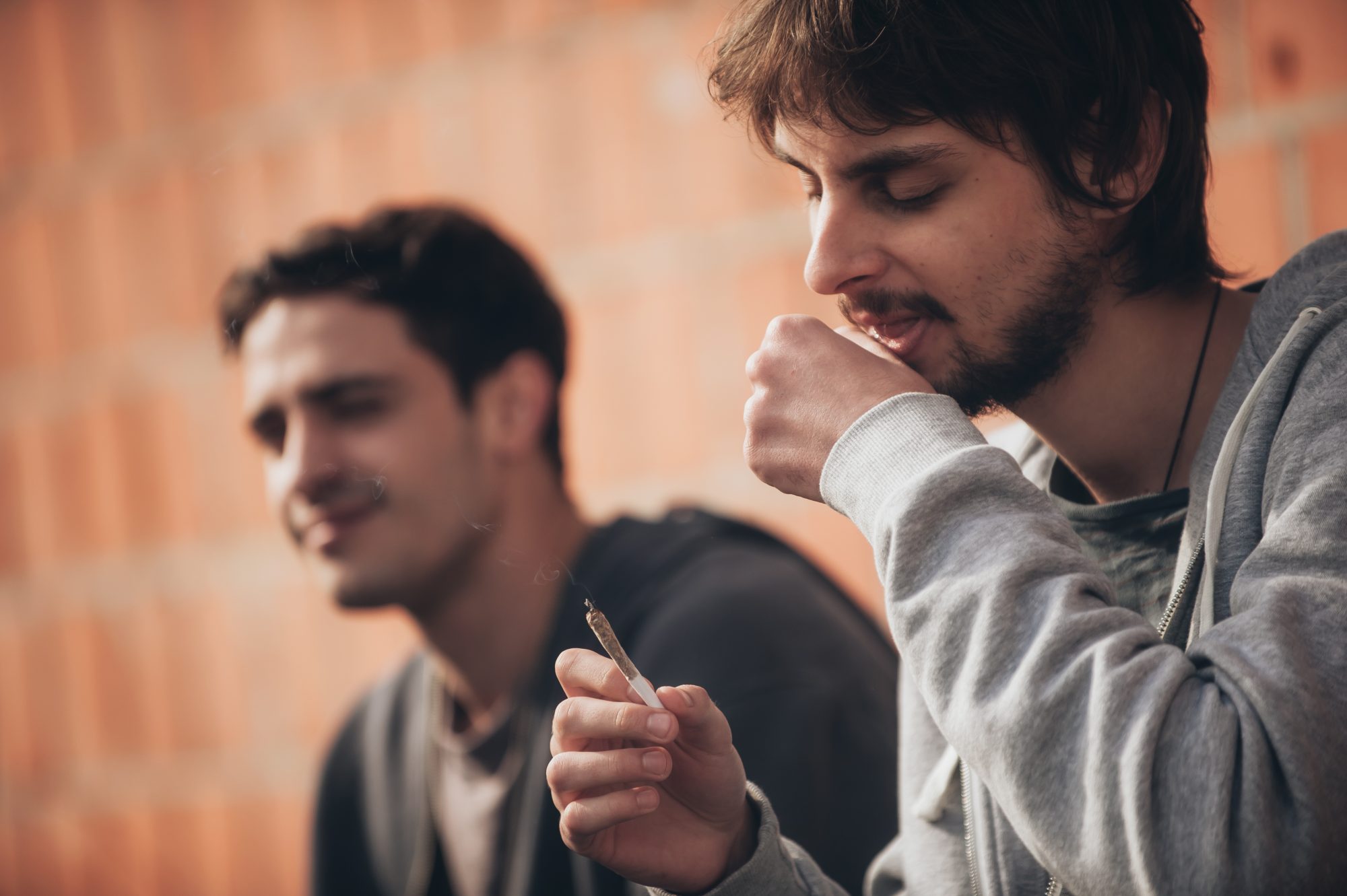States that oversaw the legalization of recreational cannabis linked to increased alcohol consumption that is largely driven by young adults and men
According to new research by University of Pittsburgh School of Public Health policy scientists, legalization of recreational cannabis is linked with increased alcoholism, largely driven by young adults and men.
The increased alcohol use recently reported in JAMA Health Forum not only links the legalization of recreational cannabis to increased alcoholism but also suggests that these states should consider targeted public health messaging around alcohol and other policy interventions to mitigate problem drinking.
‘Cannabis use increases the probability that people drink’
“Recreational cannabis laws have made cannabis legally accessible to nearly half of U.S. adults, but it has been unclear how this affects the use of other substances, such as alcohol,” commented senior author Coleman Drake, Ph.D., assistant professor in the Department of Health Policy and Management at Pitt Public Health.
“It appears that cannabis use increases the probability that people drink, at least in the three years after legalization.”

Data from more than 4.2 million adults in the U.S.
Drake and his team collated data on alcohol use by more than 4.2 million adults through the Centers for Disease Control and Prevention’s annual Behavioral Risk Factor Surveillance System surveys administered from 2010 through 2019 – at which point 11 states had legalized recreational cannabis.
The survey inquired about any of the following in the last month:
- Alcohol use
- Binge drinking
- Heavy drinking
Researchers looked at differences in responses before and after the legalization of recreational cannabis.
Any drinking increased by 1.2% points in the first year after legalization
Any drinking – measured as having “at least one drink of any alcoholic beverage” in the past month – increased by 1.2% in the first year after recreational cannabis was legalized. This small increase was diminished in the following two years. There was no change in binge or heavy drinking in the overall population.
When the team dove into the data, they found that the increase was driven by adults ages 18 to 24 who had a 3.7% point increase in any drinking. None of the other age groups had a statistically significant increase in any drinking after cannabis legalization.
Demographically, the increase was also associated with men, non-Hispanic whites and people without some college education.
Legalization of recreational cannabis not linked to increased binge or heavy drinking
While recreational cannabis legalization was linked to a small increase in alcohol consumption, the team did not find any evidence of sustained effects on binge or heavy drinking. However, Drake noted that cannabis use has nearly doubled over the past decade, and a prior study estimated that, between 2011 and 2015, excessive alcohol use resulted in the death of over 93,000 Americans per year.
“So, it will be important to monitor whether recreational cannabis laws cause increases in drinking over longer periods of time, particularly among younger adults and men,” he said.
Mitigating risk by focusing on the worst affected demographics
By focussing their attention on the groups of people who may be most likely to increase risky behaviours, such as drinking more while using cannabis, states can proactively engage those communities and look for ways to mitigate risk – such as through public health campaigns or alcohol tax strategies – before recreational cannabis laws go into effect, Drake explained.
“In prior work, I found that recreational cannabis laws temporarily reduced opioid-related emergency department visits,” Drake said.
“So, I would resist characterizations of cannabis legalization as categorically good or bad. We need to learn more about how cannabis legalization affects all substance use, health, and non-health outcomes, such as drug-related arrest rates, work-related injuries and labor market outcomes.
“Policymakers should try to think through all these costs and benefits as they consider passing recreational cannabis laws.”












Prohibitionists always use terms like “INVOLVED” , “RELATED” or “LINKED” when they tout these horrific sounding statistics and claims. Because they can’t ever prove cannabis consumption alone to be the actual “CAUSE” of anything seriously detrimental.
There is absolutely no doubt now that the majority of Americans want to completely legalize cannabis nationwide. Our numbers grow on a daily basis.
The prohibitionist view on cannabis is the viewpoint of a minority and rapidly shrinking percentage of Americans. It is based upon decades of lies and propaganda.
Each and every tired old lie they have propagated has been thoroughly proven false by both science and society.
Their tired old rhetoric no longer holds any validity. The vast majority of Americans have seen through the sham of cannabis prohibition in this day and age. The number of prohibitionists left shrinks on a daily basis.
With their credibility shattered, and their not so hidden agendas visible to a much wiser public, what’s left for a cannabis prohibitionist to do?
Maybe, just come to terms with the fact that Cannabis Legalization Nationwide is an inevitable reality that’s approaching much sooner than prohibitionists think, and there is nothing they can do to stop it!
Legalize Nationwide!…and Support All Cannabis Legalization Efforts!
There have been various studies and reports on the relationship between the legalization of recreational cannabis and alcohol consumption, and the findings have been mixed.
Some studies have suggested that the legalization of recreational cannabis may lead to a decrease in alcohol consumption. For example, a study published in the Journal of Economic Behavior and Organization found that the legalization of medical marijuana was associated with a 15% reduction in alcohol sales. Another study published in the Journal of Policy Analysis and Management found that the legalization of recreational cannabis in Washington State was associated with a 5% reduction in beer sales.
However, other studies have suggested that the legalization of recreational cannabis may lead to an increase in alcohol consumption. For example, a study published in the Journal of Regional Science and Urban Economics found that the legalization of recreational cannabis in Colorado was associated with a 3.6% increase in alcohol sales. Another study published in the Journal of Health Economics found that the legalization of recreational cannabis in Colorado was associated with a 6% increase in alcohol consumption.
It’s important to note that the relationship between the legalization of recreational cannabis and alcohol consumption may be complex and dependent on various factors, such as demographics, geography, and the specific laws and regulations in place. Further research is needed to fully understand this relationship.